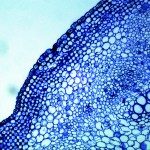Link to Pubmed [PMID] – 15356120
J. Immunol. 2004 Sep;173(6):3740-7
Type I IFNs (IFN-alphabeta) enhance immune responses, notably T cell-mediated responses, in part by promoting the functional activities of dendritic cells. In this study, we analyzed the direct impact of IFN-alpha on proliferative and apoptotic signals upon in vitro activation of human naive CD4+ T lymphocytes. We demonstrate that IFN-alpha protects T cells from the intrinsic mitochondrial-dependent apoptosis early upon TCR/CD28 activation. IFN-alpha acts by delaying entry of cells into the G1 phase of the cell cycle, as well as by increasing Bcl-2 and limiting Bax activation. Later, upon activation, T cells that were exposed to IFN-alpha showed increased levels of surface Fas associated with partially processed caspase-8, a key component of the extrinsic apoptotic pathway. Caspase-8 processing was augmented furthermore by Fas ligation. Overall, these findings support a model whereby IFN-alpha favors an enhanced clonal expansion, yet it sensitizes cells to the Ag-induced cell death occurring at the end of an immune response. These observations point to a complex role of type I IFN in regulating the magnitude of proliferation and survival of naive CD4+ T cells during primary response and underline how crucial could be the timing of exposure to this cytokine.

